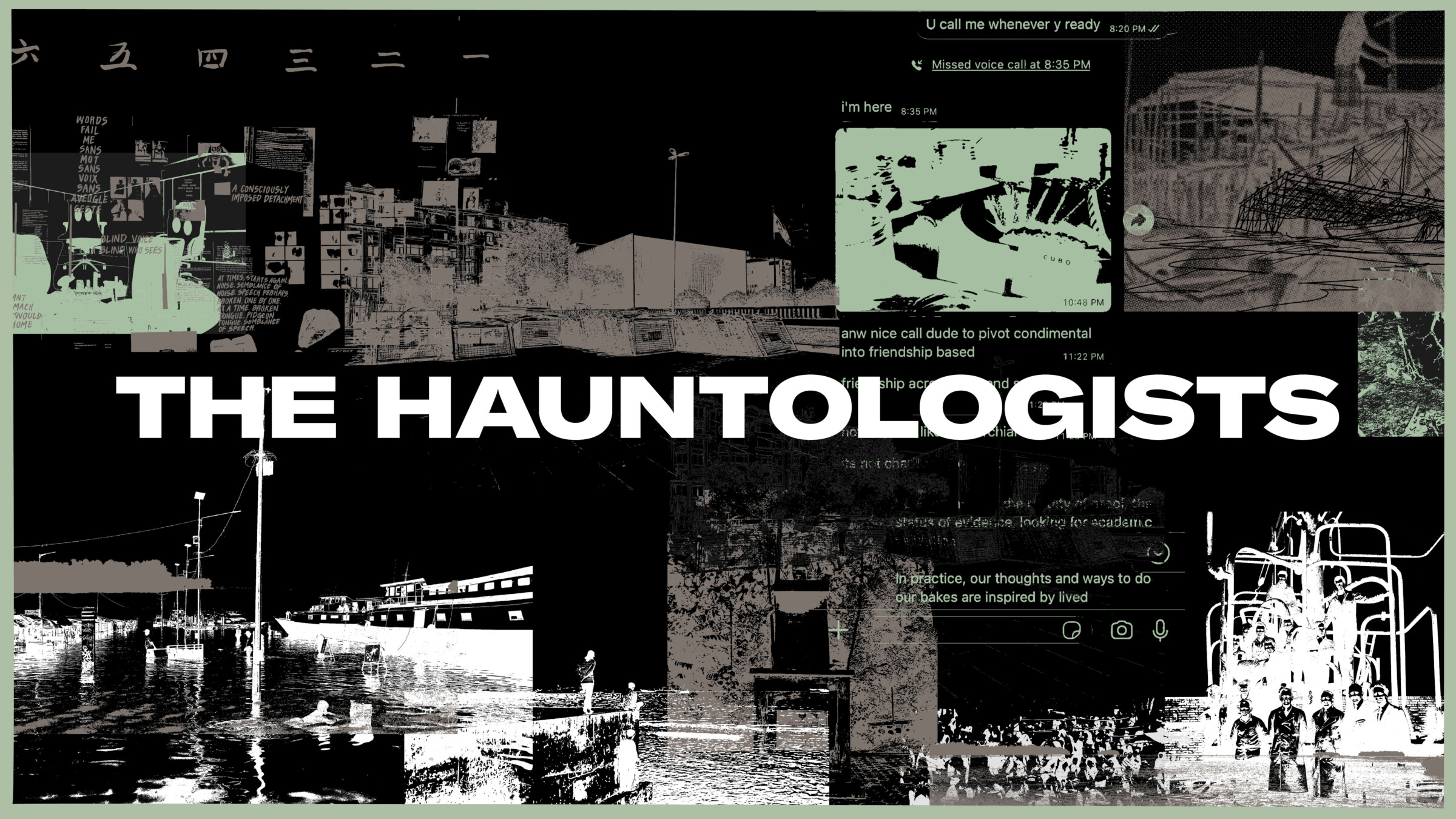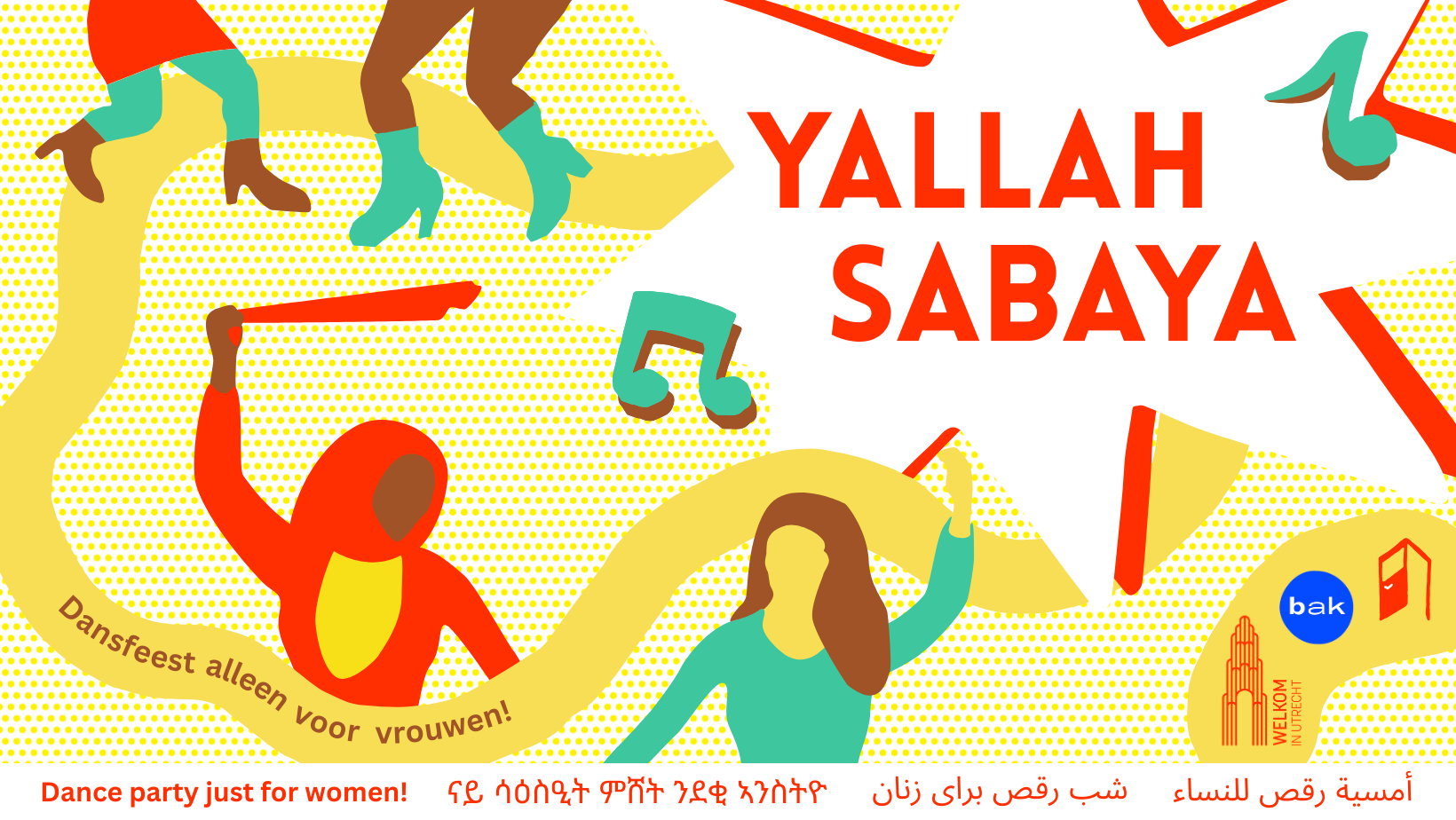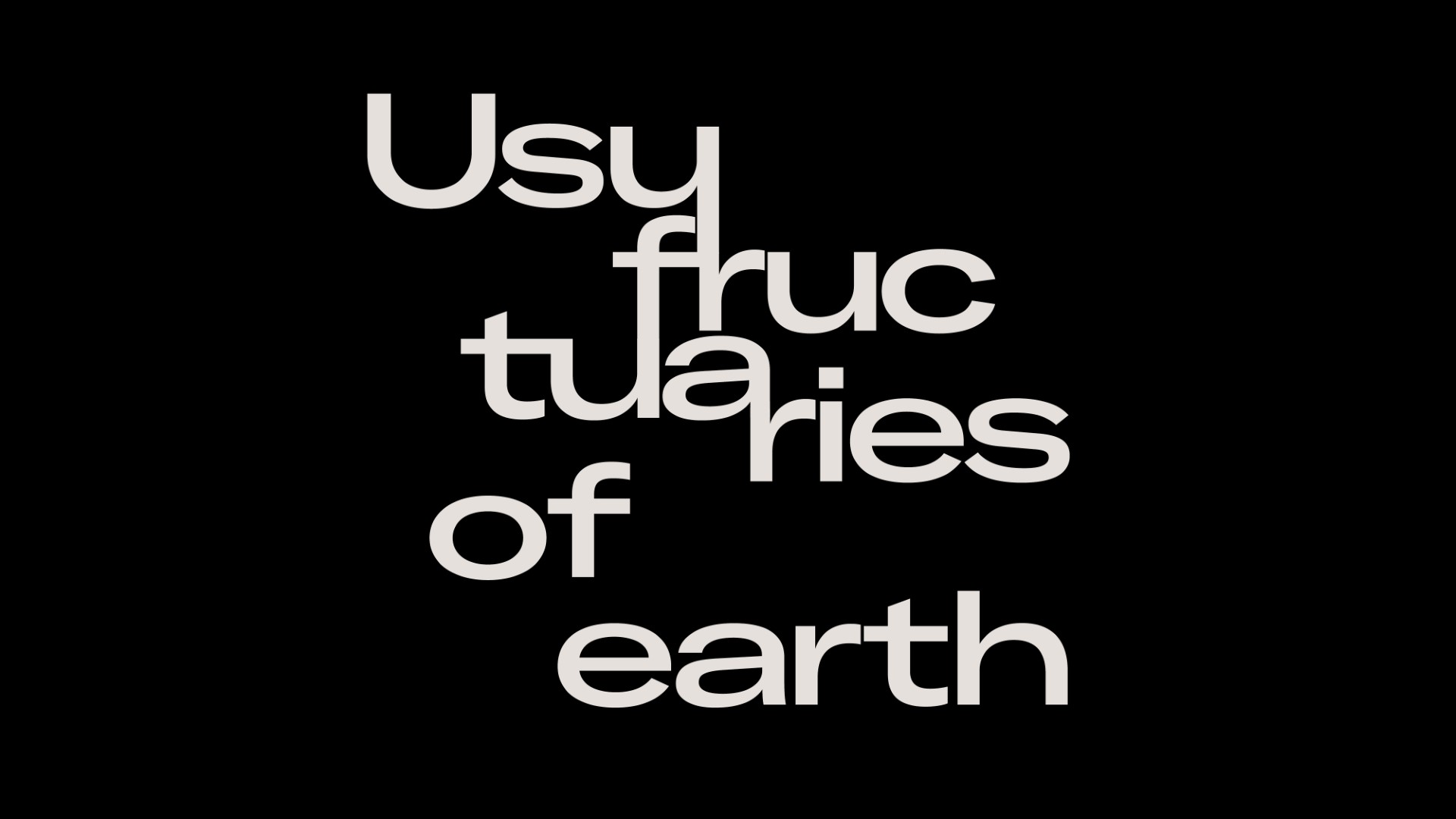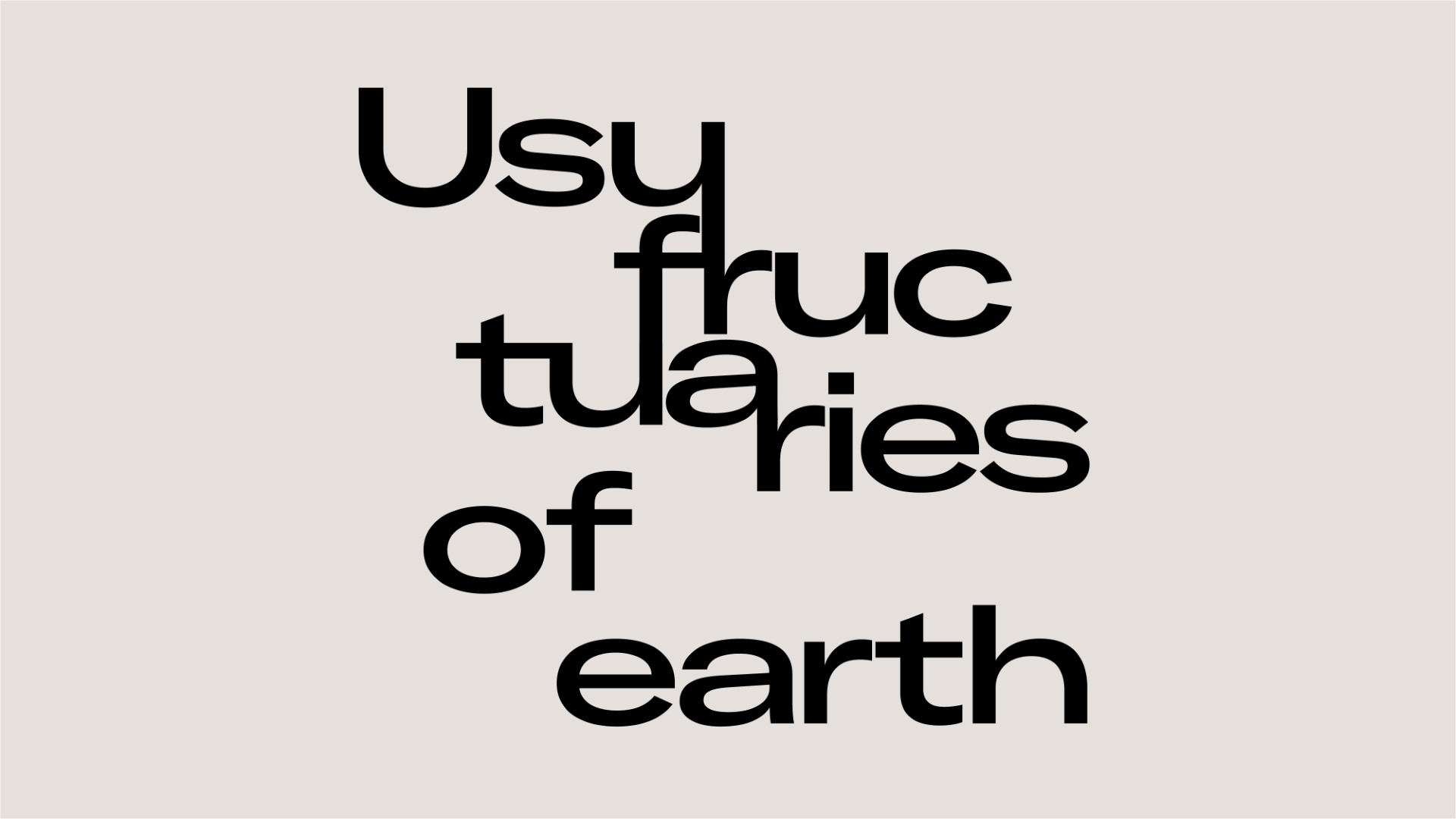The Hauntologists

Design: Sean van den Steenhoven
A project emerging through collective research from the 2021/2022 BAK Fellowship for Situated Practice. Engaging spectrality as a tactic, it takes place in Istanbul, Jakarta, and Utrecht as an evolving and distributed composition of gatherings, artworks, and publications.
10.09–13.11.2022
BAK, basis voor actuele kunst, Utrecht
18–20.11.2022
İKSV, Istanbul
02–04.12.2022
GUDSKUL, Jakarta
Participants include: Özge Açıkkol, Merve Bedir, Kerem Ozan Bayraktar, Cell for Digital Discomfort (Cristina Cochior, Karl Moubarak, and Jara Rocha), Dika+Lija, Philippa Driest, freethought (Adrian Heathfield, Massimiliano Mollona, Louis Moreno, Irit Rogoff, and Nora Sternfeld), Ilgın Hancıoğlu, Alexandra Karyn, Gayatri Kodikal, Gatari Surya Kusuma, Yen Noh, Rifandi Nugroho, İlyas Odman, Marina Papazyan, Anitha Silvia, and Zone Collective (Megan Hoetger and Kirila Cvetkovska),
among others.
At present, many find themselves haunted by the persisting brokenness of the world—inequality, war, racial and gendered violence, precarity, techno-colonialism, and other perpetual crises. Can one “haunt” back to intervene and redress this ongoing sense of dread? Could “spectrality” be embraced as an embodied cultural and political sensibility to experiment with? Can research be practiced as a “haunting” to overcome the limits of traditional categories of knowledge, knowledge production, and so-called artistic research?
Based on these questions, The Hauntologists emerges from the collaborative work of the 2021/2022 BAK Fellows to test how various notions of spectrality and spectral tactics could engage with or fathom possible burgeoning futurities, the contested strategies for living a liveable life, and the unresolved tensions in troubled archives and languages, among others. Dwelling between gatherings, seminars, subcultures, and everyday moments, the BAK Fellows and their guests—“the hauntologists”—search for vocabularies that undo the abstract social forms that stand in the way of political imagination and agency. They are furthermore committed to proposing aesthetico-political positions that open spaces of possibility and collectivity through the rehearsal of new models of reading, interpretation, and sociality. Offering a framework for a plurality of artistic practices, The Hauntologists are not merely haunted—they haunt.
These hauntings and positions materialize temporarily in The Hauntologists through study groups and installations that rehearse new modalities of reading, textuality, and the ensuing sociality, and by so doing instigate interpretative communities that redefine the very basis of what we know as cultural politics. This is pertinent in the works such as Yen Noh’s In Between Seances (2022); İlyas Odman‘s Gazhelan (2022); Marina Papazyan’s Trou de loup (2022), and Kerem Ozan Bayraktar’s Excerpts of Sea Matter (2022).
Other interventions further the investigation of the “infrastructural specters” that beset cultural work policies, histories, spaces, and even materiality, advancing thusly forms of—political, ethical, and poetical—(non)alignment, choreography, maintenance, and solidarity through workshops, sonic tours, and situated fictions. These contributions include Adrian Heathfield and Hahn Rowe’s this air (2022); Merve Bedir’s Montecarlo. Learning Structures and Bedtime Stories for the Non-Aligned (2022); Merve Bedir and Philippa Driest’s Cracks, Leakages, Maintenance (2022); and Zoning Play Complex (2022) by Zone Collective (Megan Hoetger and Kirila Cvetkovska).
Haunting as a strategy to reclaim public and natural spaces and accessible housing, as well as the sonic and the radical sociabilities inscribed in them, is also an important concern for the hauntologists. In tackling this mission, they assemble vocal and narrative fragments ranging from the legal to the personal, and collect stories that connect distinct geographies through the muddy ecology of the mangrove, the proposal of unhoused music, and even through fantastical lines of flight. These and similar practices can be found in Water Finds its Cracks (2022) by Özge Açikkol; A Spectacle of So Much Glory and So Much Shame (2022) by Philippa Driest; Mangroves Growing through the Detention Floor at Bucharest International Airport, (2022) by Gayatri Kodikal; Unhoused Music (2022) by Louis Moreno for freethought; and Ilgın Hancıoğlu’s Underneath the pavement tiles (we don’t need reality) (2022).
Another key preoccupation for the hauntologists is working with troubled and troubling archives. For them, this is the arena for a collective practice that resurrects unarchivable possibilities by collaboratively and performatively animating dormant archives: see Troubling Archives (2022), initiated by Özge Açikkol, Gatari Surya Kusuma, Yen Noh, and Rifandi Nugroho, together with Massimiliano Molona and Nora Sternfeld; as well as the research on “the unarchivable” (2019–ongoing) by Irit Rogoff.
Elaborating upon these archival methods of the tracing and compilation, Anitha Silvia’s The Women Peddler and the Periodic Markets in Eastern Indonesia Archipelagos: A Motion (2022) gathers knowledge of the fleeting economical and affective formations of women-led markets in Indonesia. Gatari Surya Kusuma inquires into how spiritual narratives and rituals are practiced as tactics against both natural and community knowledge extraction in her work An Ecological History of Tulungagung: Rituals for the Land Speaking (2022). Rifandi Nugroho’s Retracing Traces (2022) centers on the circulation of memory in everyday spatial practice in different coastal communities in Indonesia. Alexandra Karyn’s latitude in longitude (2022) looks at the enacting of care and liminality in advocacy work, providing a substratum for the hauntologists’ practice.
All of these concepts and positions metabolize and devise collective postures which operate through disagreements and affinities—such as the digital discomfort that continuously disturbs the linear narrative of seamless progression, as can be found in the online editorial by the Cell for Digital Discomfort (Cristina Cochior, Karl Moubarak, and Jara Rocha). Similarly, Dika + Lija’s packyourBAK (2022) proposes the necessity to build critical forms of friendship and exchange over individual accumulation.
The Hauntologists takes place throughout the different locations in which the BAK Fellowship for Situated Practice is established: in Utrecht at BAK from September 10–November 13, 2022; in Istanbul from November 18–20, 2022; and in Jakarta at Gudskul from November 26–December 10, 2022. Conceived as an unfolding score, the components of the program are presented in a staggered, situated way throughout the different geographical contexts, as well as on BAK’s digital forum Prospections.
The Hauntologists is assembled by Julia Morandeira, curator of the post-academic program BAK Fellowship for Situated Practice and convener of the Utrecht cell, in dialogue with the local conveners: Zeyno Pekünlü, Istanbul cell hosted by the Istanbul Biennial Production and Research Programme, İKSV (Istanbul Foundation for Culture and Arts); Gesyada Siregar and Angga Wijaya, Gudsel hosted by Gudskul in Jakarta; and the 2021/2022 BAK Fellows. It includes a variety of collaborators, including freethought collective and Le Guess Who? festival in Utrecht.
The 2021/2022 BAK Fellowship for Situated Practice has been realized through a federated extitutional collaboration among research cells at BAK (Utrecht), Gudskul (Jakarta), the Istanbul Biennial Production and Research Programme at İKSV (Istanbul), and online. The conceptual framework was developed in conjunction with the “Spectral Infrastructure” research trajectory developed by freethought collective.
BAK’s activities have been made possible through financial contributions by the Dutch Ministry of Education, Culture and Science and the City of Utrecht. The Hauntologists has been made possible by extra financial contributions from the Programme for the Internationalization of Spanish Culture (PICE) granted by AC/E – Acción Cultural Española; the Arts Council Korea in collaboration with ISAC, the international partnership in support of arts creation; and the Marinus Plantema Foundation.
BAK’s main partner in the field of education and research is HKU University of the Arts, Utrecht.



